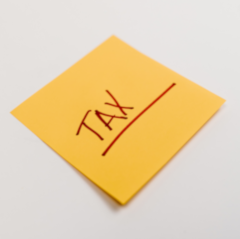Tax 101: Tips to avoid the most common tax mistakes
By Lizelle Steyn
22 February 2024
If you’re new to the world of earning your own income or never needed to file a tax return before, dealing with the SA Receiver of Revenue a.k.a. the “taxman” may be daunting. In truth, there’s no need to worry, millions of people have figured it out before you, and you will too. And gone are the long queues – everything can now be done via the SARS e-filing website.
Who doesn’t need to file a tax return?
You don’t need to file if you earn less than R500k as an employee of only one company and that company automatically deducts pay-as-you earn tax from your salary and/or you earn income from a tax-free investment account and/or you earn interest of less than R23 800 per tax year and no other income.
Things get more tricky when you own a business or have overseas investments. That’s where Tax Tim is helpful to help you figure out if you need to file or not.
If it’s a Yes from Tax Tim, you need to register with SARS for e-filing and submit your income and qualifying expenses/deductions in the “filing season” announced each year (it normally starts on 1 August and continues for about 3 months).
Keep things tidy, put your tax info in its own folder
Sloppy record keeping and not being able to find important documents must be the most common mistake e-filers make. Therefore start with the end in mind. After you’ve filed, SARS will ask you to submit proof, what they call “supporting documents”. So, you might as well open a folder on a cloud platform like DropBox now where you store:
- all your tax invoices submitted to clients
- proof of tax-deductible expenses
- Your IRP5 from your employer
- All your tax certificates from financial institutions you invest/save with – called IT3B’s and IT3C’s
- Proof of any retirement annuity contributions
- Proof of donations to registered NGO’s (ask them for a certificate)
- Proof of medical aid contributions
If you use your laptop for work, claim it back
If you bought a laptop or other qualifying equipment needed for your work during the tax year, you can write if off over 3 years for tax purposes. If it cost less than R7000, you can claim back the full amount for tax purposes in the first year. Tax Tim has a handy wear-and-tear calculator.
If you’re going to invest, do it with tax benefits
Tax-free savings accounts are not for short-term saving or emergency funds. But if you’re investing for the long haul, you have a choice between either a tax-free savings account or a retirement annuity.
Don’t let tax be the reason you register your business as a company
A company is great for formalising share holding between business partners, succession planning and protecting yourself against creditors. You’ll end up paying a flat 27% tax rate, though. If you’re only one service provider, you’ll be better off tax-wise operating as a sole trader until you bring in partners or start thinking about building a business you can re-sell. Also, don’t be too quick to register for VAT – it’s only necessary once your annual turnover exceeds R1 million.
Wealthy relative? You can graciously accept up to R100k a year
When you’re older, it’s not that hard to have a net asset value of more than R3.5m once you add up your home, vehicles, valuables and investments. But estate duty is payable after death on everything above R3.5m. You may feel too proud to accept a big cash gift from a grandparent, but it’s better than the taxman getting his hands on it. So, if for example there are 4 grandchildren and you have a well-to-do grandmother, she can donate R100k in total or R25k per grandchild every tax year without donations tax being an issue.
Don’t just blindly accept your auto-assessment
E-filing has become easier over the years. You no longer need to enter every little amount on the tax certificates sent to you by your employer, medical aid and financial institutions. When you log into your account during filing season, these fields should be pre-populated. The new auto-assessment process still has teething problems, though. So, don’t just blindly accept the result. Double-check and take up any discrepancy with the provider of the tax certificate.
With the Tax Administration Laws Amendment Act of 2020, mistakes by negligence or ignorance are now viewed as a crime. So, make sure to educate yourself on Tax101 and ask Tax Tim for online help, and you’re bound to sail around the most common tax mistakes like a seasoned tax payer. Tax status: compliant.
Related blog posts

Tax and how to legally avoid it as an investor
9 March 2022
Tax can get complicated, especially when you invest in foreign companies and ETFs. But if you largely steer clear of standard taxable investment accounts, you only need to remember a few things to easily navigate your path through the tax landscape. I share a recent podcast and my tax talk on the Easy Equities 'Invest for your Future' webinar with you.
